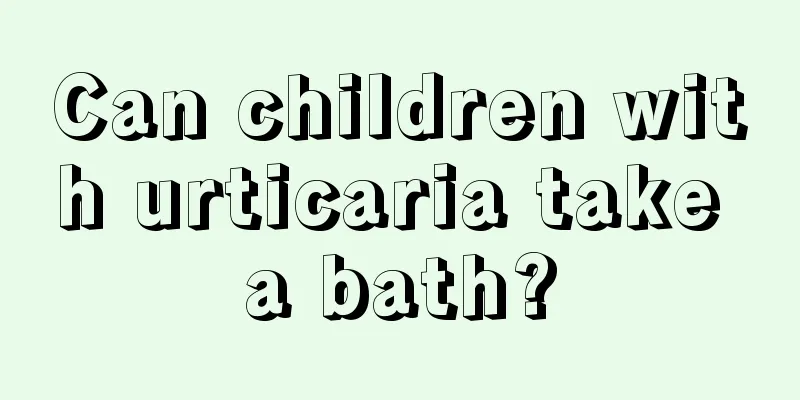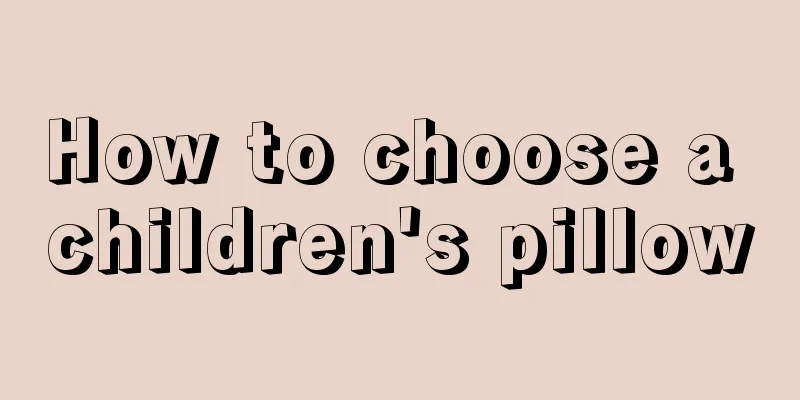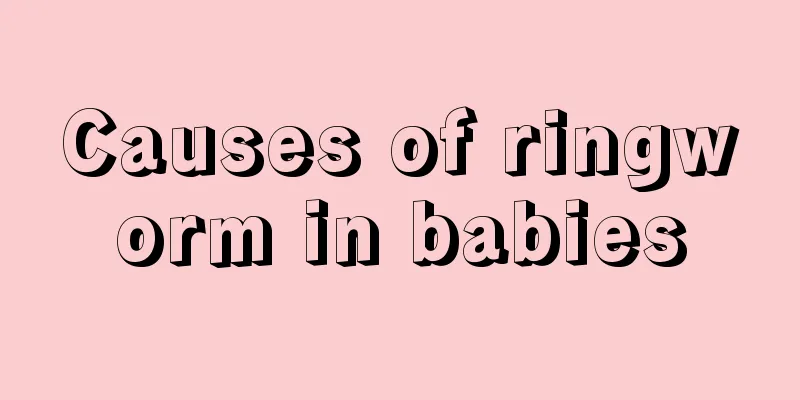Can children with urticaria take a bath?

|
Children are more likely to get urticaria than other people. Urticaria is a more serious skin infection. Red rashes and itching will appear on the patient's skin surface, accompanied by vomiting, diarrhea, chest tightness, palpitations and even difficulty breathing. There are still benefits to the body of children who have urticaria when taking a bath, such as maintaining the skin's sensitivity and making the child feel happy. However, it should be noted that children with severe urticaria should not take a bath. Can children with urticaria take a bath? 1. When you can take a bath Children's urticaria is relatively mild. The urticaria on the body only causes red rashes and itching, but the surface skin is not scratched or broken. Children can take a bath if they do not have nausea, vomiting, headache, swelling of the head, abdominal pain, diarrhea, chest tightness, pale complexion, accelerated heart rate, weak pulse, low blood pressure, shortness of breath and other systemic symptoms. 2. Situations where you cannot take a bath Children with urticaria have more serious symptoms. In addition to rashes and itching, the surface of the skin may also be accompanied by ulcers. In addition, if the above-mentioned systemic discomfort occurs, or if the patient has a rare aquagenic urticaria caused by allergy to water, they should not take a bath easily. There are three major benefits to taking a proper bath for children with urticaria: 1. Keep your skin clean Babies are active and prone to sweating. Usually, babies with minor urticaria will still play happily and sweat from time to time even during the illness. Therefore, if the baby has urticaria and can take a bath, parents need to bathe the baby appropriately to keep the skin of the urticaria-affected area clean and hygienic, and avoid the salt contained in the sweat from irritating the affected area. 2. Make you feel comfortable When a child suffers from urticaria, multiple red rashes will appear on the body, and these rashes can cause severe itching. Many child patients will become unhappy due to the itching. By taking a bath, the capillaries in the affected skin can be properly stimulated, the blood circulation can be accelerated, the itching can be appropriately relieved, and the child will naturally be in a better mood. 3. Promote recovery from illness If a child is not bathed for a long time during the period of urticaria, dust, sweat, oil and other substances may easily adhere to the body, causing the skin pores to be blocked, the affected skin cannot breathe, and other skin problems may easily occur, resulting in the disease being difficult to cure. Therefore, bathing children appropriately is, to some extent, a way to promote recovery. |
<<: What to do if your baby has measles
>>: What to do if baby's face becomes red due to eczema
Recommend
What is the reason for the child's weak legs?
Children's body functions are not fully devel...
The baby cries at the same time every afternoon
Many parents are annoyed by their children's ...
Traditional Chinese medicine treats tonsillitis in children, these prescriptions should be kept well
If a child suffers from tonsillitis, some common ...
What should I do if my baby chokes when drinking water?
Many parents report that their babies choke when ...
Why does it hurt when your baby urinates?
Painful urination in babies is a common problem i...
What are the developmental indicators of a 17-month-old baby?
A 17-month-old (i.e. 1 year and 5 months old) bab...
How to deal with the newborn's vulva
In our lives, many women will have some gynecolog...
What causes fetal hemangioma?
In the clinical practice of children's diseas...
What are the dangers of insufficient sleep for teenagers?
For teenagers, healthy growth is the most importa...
Is it normal for a newborn to poop while eating?
Many things happen to newborns that adults do not...
How to quickly remove teeth marks from bite wounds
Bites are very common in life, mainly divided int...
Why does a five-year-old child have leg pain?
Children are in the period of growth, so parents ...
Winter health care for children
As the saying goes, a year's plan starts with...
How to relieve the pain of tooth decay in children
For children, tooth decay, also known as cavities...
Why do children urinate frequently?
Children's bodies are prone to some problems....









